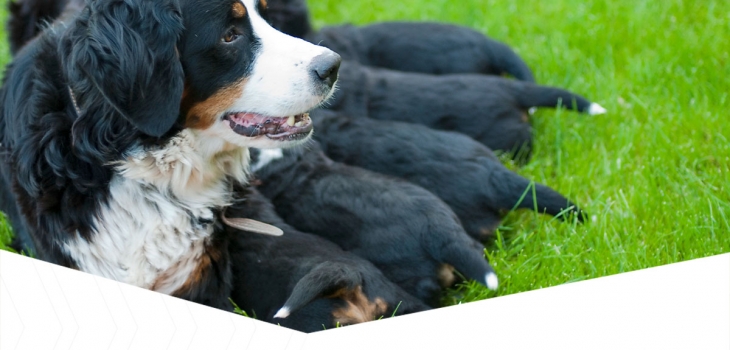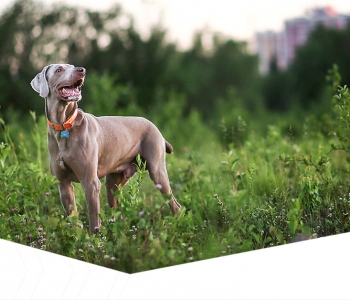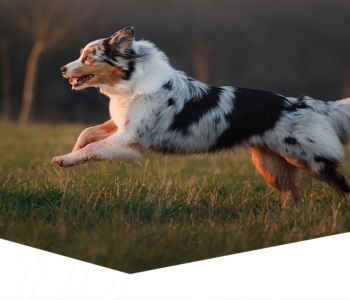
What are the key nutritional factors that help with…
Only extreme exercise is more energy demanding than lactation. The right nutritional support is incredibly important as the dam will sacrifice her own body condition to continue producing an adequate quantity of nutrient rich milk for her pups.
Here we talk about how and why nutrient requirements are directly related to milk production, we offer advice on how to feed mum during the weaning process and discuss dietary supplements throughout the lactation period.
Breeders know that successful lactation is critical for the health of both mum and the puppies. The degree of stress that lactation places on a bitch depends greatly on both her nutritional status and weight at parturition. In addition to this the litter size and stage of lactation will also add to this stress. But why is the milk of a bitch so special? A bitch’s milk is more nutrient dense than cow’s milk, it contains about 1300 kcal/litre compared to 713 kcal/litre for a Holstein cow. It has twice the fat (9.5% vs. 3.5% ‘as fed’ respectively) and protein (7.5% vs. 3.3% ‘as fed’ respectively). This is all because the growth rate of a puppy is much more rapid than that of a calf and also for a newborn baby and this growth rate needs to be supported by the bitch. In addition to the superior nutritional content the total amount of milk produced is impressive too:
Examples of the bitch’s superior milk producing ability:
German Shepherd: During the 3rd- 4th week of lactation a German Shepherd with 6 puppies can produce around 1.7 litres of milk per day! (Russe, 1961)
Beagle: At a similar stage of lactation and with five to seven puppies the Beagle will produce between 964ml – 1,054ml of milk per day. (Oftedal, 1984)
Woman: In contrast a woman will produce approximately 750ml of milk per day during a 3 month lactation period (Pellet, 1990)
To help support the dam there are a few nutritional considerations that need to be supplied by the breeder:
Water: Sometimes overlooked, water is the first nutrient needed for lactation. If ample water intake is not provided a sufficient volume of milk may not be produced (Debraekeleer et al, 2010). This is because milk is approximately 78% water, so water requirement will increase drastically during lactation. But how much is enough? Water requirements in ml are roughly equal to energy requirements in kcal. A 35kg bitch nursing a large litter may require five to six litres of water per day at peak lactation. The message here is that clean fresh water should be available at all times and in convenient locations for mum to access easily.
Energy: Ample energy intake allows for sufficient milk production and helps prevent drastic weight loss. At parturition the mother should weigh 5-10% above her pre-breeding body weight. After whelping the bitch’s energy requirement will steadily rise and peak around weeks three to five, (Leibetseder, 1989) at a level two to four times higher than daily energy requirements. If a low energy food is fed the bitch will physically be unable to eat enough of the food to maintain energy and weight and can lose condition, have low milk production and can also appear physically exhausted. Of course this is something all breeders want to avoid and so providing an energy dense diet specially formulated for growth, performance or high activity such as Eukanuba Working and Endurance or Eukanuba Puppy Small Breed will help provide the energy levels required without mum needing to eat a ridiculously high volume of food.
Practical Feeding Tips during lactation:
- Feed a diet which is highly digestible and nutrient and energy dense
- Provide adequate calories to prevent weight loss
- Provide clean fresh water in easy to access to locations
- During peak lactation feed two to four times her maintenance energy requirements
- Provide free choice feeding or several meals per day (e.g. 4-6) during peak lactation – even when a high quality super premium diet is fed the quantities can exceed the capacity of the gastrointestinal tract.
- Slowly reduce the dam’s intake after the sixth week of lactation in parallel with the reduced suckling of the puppies.
- When the puppies are between 3 and 4 weeks old supply the bitch’s food on a high surface, out of the puppies’ reach.This is especially important for large/giant breeds as the dams diet will be too energy dense for the large breed puppies.As discussed last week excess energy for large/giant breed puppies maximises growth rate which compromises skeletal development. Large/giant breed puppies need a reduced energy puppy diet to control growth rate such as Eukanuba Puppy Large Breed.
Week 1: Feed 1.5 to 2 times maintenance energy needs during
Week 2: Feed 2 times maintenance
Weeks 3-5: Feed 2.5 to 4 times maintenance (peak lactation)
Week 6: Slowly begin reducing the dam’s energy intake here as the puppies will begin eating solid food and so the amount of milk consumed will decrease.
Feeding mum when weaning: As lactation progresses so too will the puppy’s nutritional source. Pups usually begin eating solid food as early as 3-4 weeks of age, typically increasing around the fifth week and by the time they are 6-7 weeks old they will be consuming most of their dietary needs in the form of solid food. If milk production is allowed to continue at a high level during this stage, immediately before complete weaning, then there is a high chance of the dam developing mastitis. Provided the dam is in good condition all food should be withheld from her on the first day of weaning when the puppies are completely separated from her. After this the daily feeding ration can be gradually introduced at 25%, 50%, 75% and finally 100% of her maintenance level on successive post weaning days.
As a general guide it is normal for the bitch to lose some weight during lactation but this should not exceed 10% of her normal bodyweight and proper feeding throughout pregnancy and lactation will help ensure minimum weight is lost, even with large litters. A bitch in poor condition at the time of breeding will typically lose greater amounts of weight than desired.
The repletion period: This is the period when the dam’s body regains stores of nutrients lost in during gestation and lactation. Continuing to feed the nutrient and energy dense food provided during lactation for at least 3 week after weaning will support optimal nutrient repletion in the bitch.
To supplement or not to supplement, that is the question: It is quite popular for breeders to offer certain supplements during lactation and only because they want to support the bitch’s health. But, it is important to know that an animal will only show a positive health response to supplementation when the food being fed fails to supply optimal nutrition. Therefore, it is safer (and more economical) to feed a high quality diet that does not need supplementing such as Eukanuba.
The supplement most commonly cited for use during lactation is calcium. Whether offered as a mineral supplement or by adding calcium containing foods to the diet such as cottage cheese, milk and other dairy products, the added mineral is often believed to aid milk production. However, calcium regulation is tightly controlled by hormones and adding extra calcium will only interfere with the body’s natural response to additional calcium needs during lactation. Calcium supplementation can reduce the bitch’s own ability to meet the high demands for calcium and in severe cases can lead to eclampsia. The likelihood of eclampsia is greater in smaller breeds and is most common at parturition or 2 to 3 weeks later and is caused by a failure by the dam to maintain calcium levels when it is being lost via the milk. The dog may develop seizures and it can be life threatening if not detected early enough. For this reason calcium supplementation is not advised in pregnancy and lactation, especially when a high quality complete and balanced diet is being fed to the bitch.









